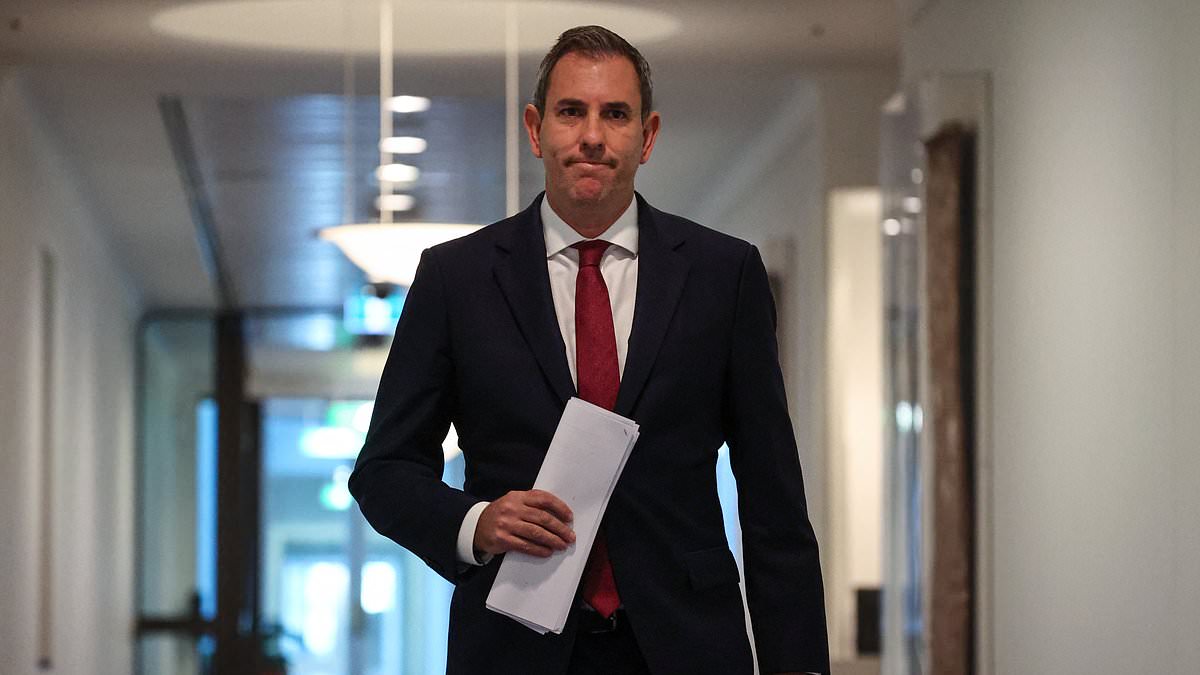Treasurer Jim Chalmers has left the door open to reforming tax breaks for investor landlords after trade unions called for a restriction on negative gearing.
ACTU secretary Sally McManus, a participant in the government’s Economic Reform Roundtable, has called for negative gearing and the 50 per cent capital gains tax discount to be restricted to one investment property.
Under her proposal, arrangements for existing investors would be grandfathered for five years before new restrictions were introduced.
‘You can have as many investment properties as you want but in terms of the tax benefit, limit that to one,’ she told ABC Insiders on Sunday.
‘Unless we change it, working people can’t live where they work, they can’t live where they grew up, and it is causing an enormous amount of pressure for people.’
Chalmers on Wednesday declined to rule out restricting negative gearing and the capital gains tax discount, despite Prime Minister Anthony Albanese ruling out changes in Opposition after Labor had lost the 2019 election.
‘What I’ve tried to do, and not just in relation to the ACTU and others who’ve made these suggestions, is I don’t want to get in the habit of knocking off ideas before we get in the room,’ he told reporters in Canberra.
‘I want people to feel like their contributions are valued because they are.
‘Firstly, when it comes to those areas, the government hasn’t changed its policies or its positions on those areas.’
Ms McManus rebuffed a suggestion reforming negative gearing and the 50 per cent capital gains tax discount would amount to a broken promise, given Albanese won the 2022 election by scrapping his Labor predecessor’s policies.
‘I just say that we’ve got to bite the bullet, like, otherwise we’re just saying “too bad young people, you’re not going to be able to ever own a home, forget even thinking about it”,’ she said.
‘Since 2019, the problem’s just got worse, it’s going to continue to get worse unless the government’s brave enough to do something about it.
‘We are just abandoning those generations and we think that’s fundamentally wrong.’
‘s median capital city house price of $1.045million is so expensive that someone with a 20 per cent mortgage deposit would now have to earn $161,000 a year just to get a mortgage.
That is significantly more than the average, full-time salary of $102,742, which means only high-income earners or a dual-income couple can afford a house in a big city.
Labor under former leader Bill Shorten lost the 2016 and 2019 elections with a plan to restrict negative gearing to just future purchases of brand new properties and halve the 50 per cent capital gains tax discount to 25 per cent.
Since September 1999, an investor who made a $100,000 capital gain on a property would only have to add $50,000 to their taxable income for that financial year.
The Greens have a similar position to the ACTU, in that they want negative gearing and the 50 per cent capital gains tax discount restricted to one investment property.
Since July 2024, the federal government and the states have had a plan to build 1.2million homes over five years, hoping that will boost housing supply and address affordability issues.
Real estate data group Cotality, however, noted hadn’t built more than a million homes over a similar time frame since the five years to 2019.
Cotality ‘s head of research Eliza Owen said that period coincided with quality issues in new apartments, especially in Sydney.
‘While a lot of new dwellings were completed, this did not necessarily lead to good housing outcomes – capital growth outcomes for investors have generally been very poor for 2010s apartments and defects were so rife that some new dwellings could not even be lived in,’ she said.
She added that building companies would be unlikely to be able to build more homes, even with government targets.
‘While state and local governments focus on approvals and improving the feasibility of new projects, building companies continue to be stretched thin across an already swollen pipeline and reduced margins,’ she said.
